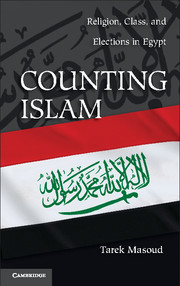Book contents
- Frontmatter
- Contents
- List of Figures
- List of Tables
- Preface
- Acknowledgments
- A Note on Transliteration
- Introduction: An Islamist Monopoly
- 1 Explaining Islamist Dominion
- I ISLAMISTS AND THEIR RIVALS IN AUTHORITARIAN ELECTIONS
- 2 Clientelism and Class: The Tragedy of Leftist Opposition in Mubarak's Egypt
- 3 The Islamic Machine?
- 4 Winning in the “Well-Run Casino”
- II ISLAMISTS AND THEIR RIVALS AFTER THE “ARAB SPRING”
- Bibliography
- Index
4 - Winning in the “Well-Run Casino”
Published online by Cambridge University Press: 05 July 2014
- Frontmatter
- Contents
- List of Figures
- List of Tables
- Preface
- Acknowledgments
- A Note on Transliteration
- Introduction: An Islamist Monopoly
- 1 Explaining Islamist Dominion
- I ISLAMISTS AND THEIR RIVALS IN AUTHORITARIAN ELECTIONS
- 2 Clientelism and Class: The Tragedy of Leftist Opposition in Mubarak's Egypt
- 3 The Islamic Machine?
- 4 Winning in the “Well-Run Casino”
- II ISLAMISTS AND THEIR RIVALS AFTER THE “ARAB SPRING”
- Bibliography
- Index
Summary
Chapter 2 demonstrated how the politics of patronage and clientelism pose severe disadvantages for opposition parties under authoritarianism. Parties of the left find that their fervently-believed and passionately-delivered messages of redistribution fall on deaf ears, as the poor and rural constituencies to which they are directed are forced to vote for regime allies and local notables who can have a rather more direct impact on their daily lives. Chapter 3 investigated one popular explanation for how the Muslim Brotherhood was able to overcome these difficulties: sweeping up the hearts, minds, and votes of the poor with an array of services thought to be so extensive that they constituted a veritable state within a state. However, given the many ways in which the regime intervened in the civic realm to prevent precisely this outcome from occurring, it is unlikely that the story is this simple.
In this chapter I offer an alternative account of the Muslim Brotherhood's electoral victories under authoritarianism. The movement did not try to beat the regime at the game of patronage but rather played a different game entirely. Instead of competing with the regime for the votes of the poor, I argue that the Brothers instead won elections by mobilizing a small middle-class constituency. If elections in Mubarak's Egypt were, to use Benedict Anderson's (1988) evocative phrase, a “well-run casino,” the Muslim Brotherhood had found a way of beating the house.
- Type
- Chapter
- Information
- Counting IslamReligion, Class, and Elections in Egypt, pp. 93 - 120Publisher: Cambridge University PressPrint publication year: 2014

